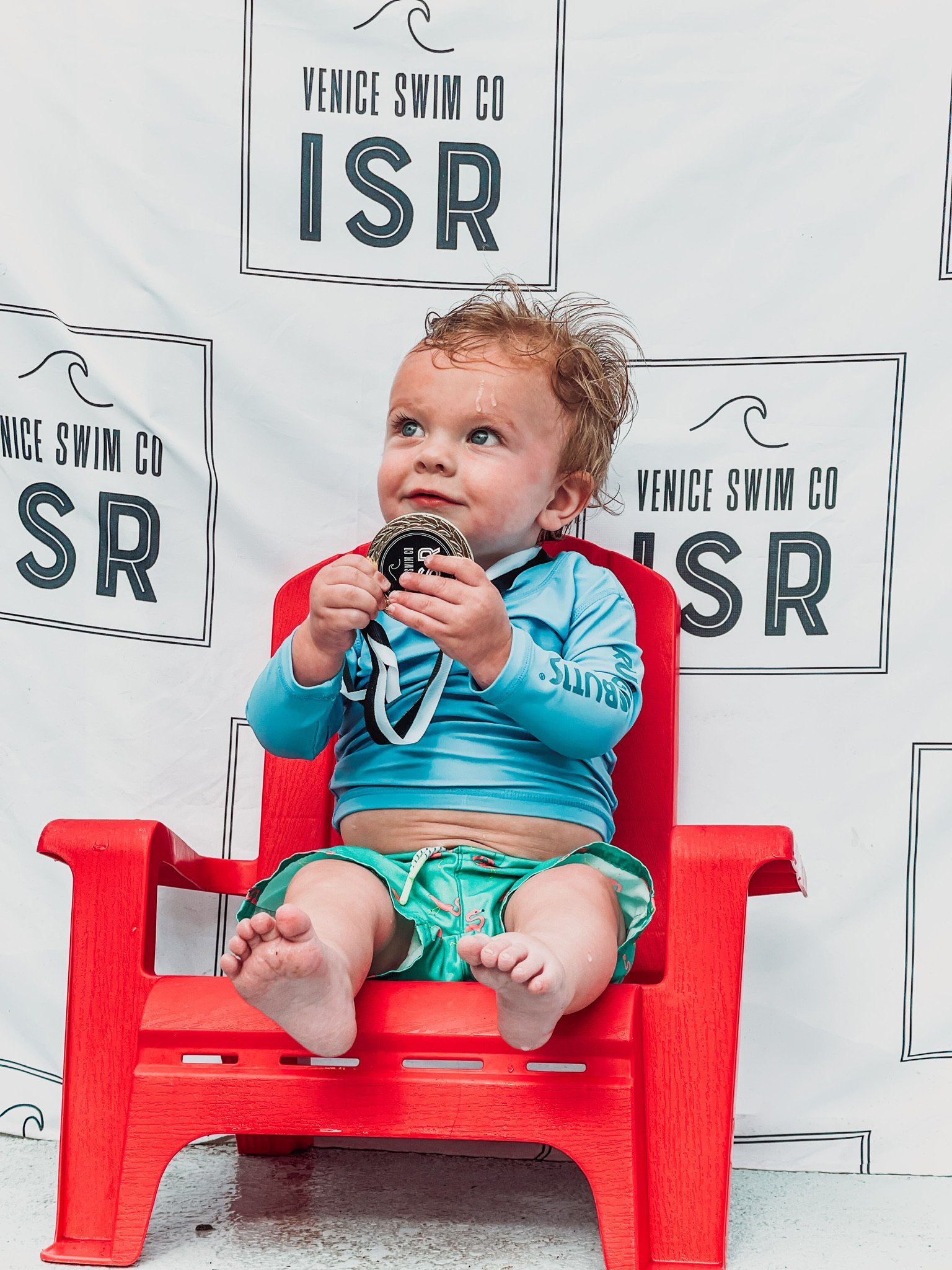
Frequently asked questions
What will my Child Learn?↓
Generally speaking, children ages 6 months to 1 year learn the ISR Self-Rescue skill of rolling onto their backs to float, rest and breathe. They learn to maintain this position until help arrives.
Older, more mobile children will learn the full ISR Self-Rescue® sequence of swimming until they need air, rotating onto the back to float, then rolling back over to continue swimming. ISR students are taught to repeat this sequence until they reach the safety of the steps, side of the pool, or the shoreline.
How old does my child have to be?↓
Only 6 months old!
Contact your ISR Instructor any time your child exhibits inappropriate or concerning behaviors in the water.
How long are lessons?↓
Over 50 years of working in the water with children has led to the discovery that skills are most effectively retained and mastered when the lesson is less than ten minutes in length, with presentations five days per week.
ISR lessons are conducted with one Instructor and one student in the pool at a time. They are held 5 days a week, for no more than 10 minutes a day. While the average student becomes fully skilled in approximately 6 weeks, many factors influence the amount of time it takes, including: age, medical/developmental history, prior aquatic history, prior use of flotation devices, attendance, and illness.
What if my child gets upset or cries?↓
Children may cry because this is how they communicate with us.They may also cry if they are uncomfortable, or are doing somthing that is new to them or just differnt. Once your child is comfortable with the new skills they learned, the crying may lessen or stop completly. Remember we are showing them how to save their lives, and a crying baby is a breathing baby:)*
What is Maintenance?↓
Maintenance lessons are designed to fine tune the student’s skills, or to prevent problems with the child’s technique. As a child’s confidence in the water grows, they may try to experiment with new behaviors or try to emulate siblings or adults. This may negatively affect his or her ability to swim or float. These lessons are conducted periodically, based on the Instructor’s assessment of need and the parent’s scheduling preferences.
What are refreshers?↓
Refresher lessons are a condensed version of initial lessons and are offered on at least an annual basis. Because children grow rapidly, physically and mentally, during the course of a year and are continually developing new skills, these lessons assist the child to adjust their previously mastered skills to their new bodies. It is not unusual for children to not swim or float at the same skill level that they did during the previous season’s lessons. This does not mean that they have "forgotten" to swim or float, it means that they need to practice their skills in their new larger, stronger body. The length of refresher lessons will vary based on the child’s water experience and any interference that may have occurred since the last le
